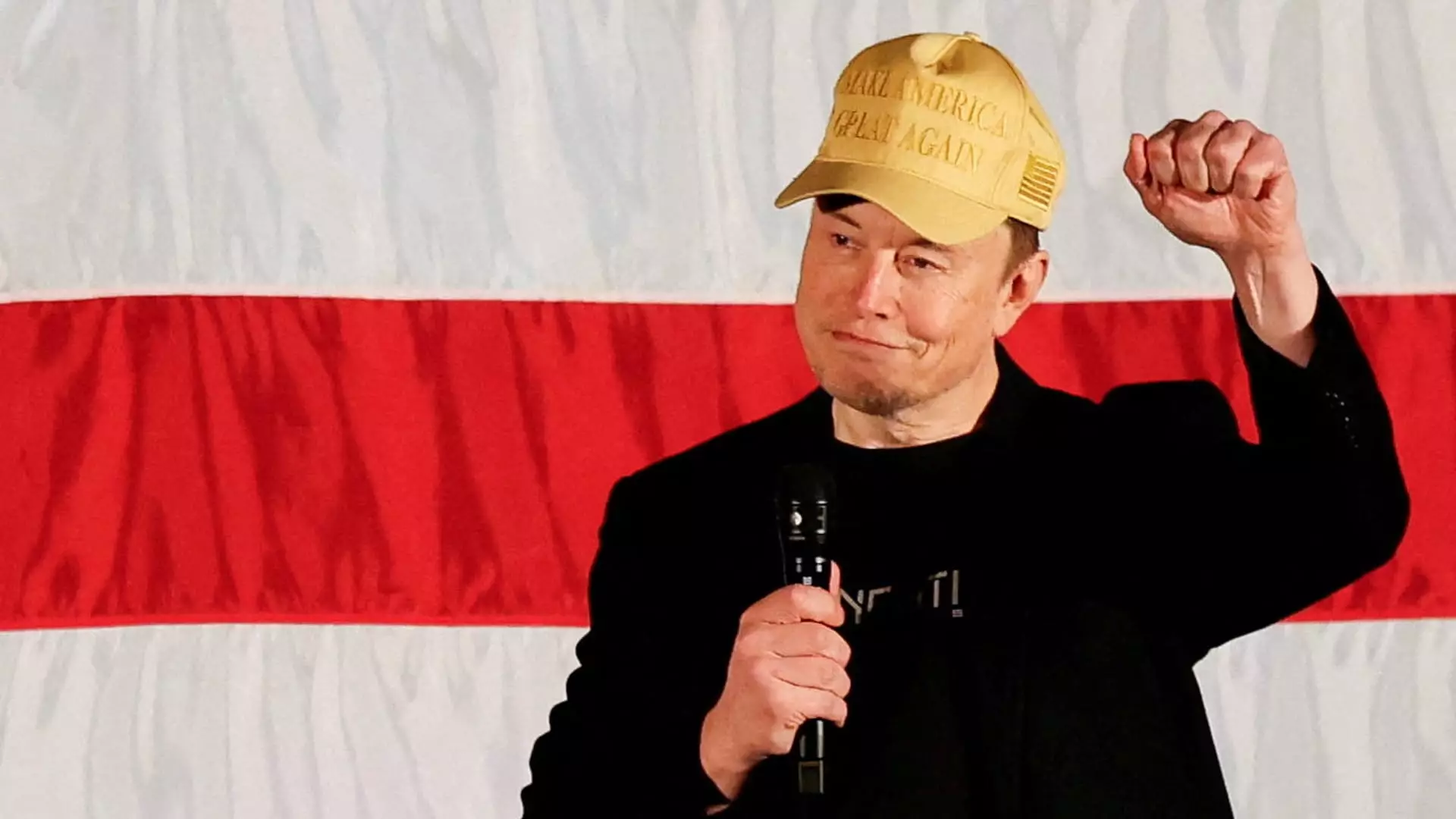Elon Musk, a name synonymous with innovation and unyielding ambition, has always found himself at the intersection of technology, business, and politics. Recently, his announcement to randomly reward $1 million daily to registered voters who support his pro-Trump political action committee raised eyebrows and sparked debates about the ethics of such actions. As excitement swirled around his monetary incentive, questions around legality, morality, and implications on democracy also loomed large.
During a recent gathering for the America PAC event in Harrisburg, Pennsylvania, Musk unexpectedly revealed his plan to award vast sums of money to incentivize voter registration. With the stakes high as the election approaches, he described this initiative as an amusing and constructive way to mobilize support in key swing states. By targeting voters in states such as Arizona and Pennsylvania, he is not merely playing the role of a tech mogul but stepping into the realm of electoral influence.
However, the execution of this plan brings to light serious moral and legal dilemmas. Musk’s decision to turn voter registration into a competitive cash grab undermines the very essence of democratic participation. How does one connect a financial incentive with civic duty? For many, this approach appears to commodify a sacred right, raising red flags about the integrity of electoral processes.
Beyond the ethical quandaries, Musk’s initiative is teetering on the edge of legality. As noted by legal experts like Rick Hasen, a law professor at UCLA, the proposal may violate federal election laws designed to prevent the commercialization of voting. The law prohibits any kind of payment for voter registration or voting, reinforcing the principle that democracy cannot be bought. Hasen emphasizes that elections should be free from the overreach of wealthy individuals attempting to twist public opinion to their advantage. With the allure of a million-dollars-on-the-table, the motivation for many may shift from civic duty to financial gain.
The ramifications of such actions are wild, potentially leading to a political landscape where wealth could distort electoral outcomes. If Musk’s proposal were to go unchecked, could it present a dangerous precedent where constituents sell their voices to the highest bidder?
Musk’s political engagement goes beyond cash prizes. He has made headlines for his controversial views on several issues including government regulations, corporate governance, and even expressing disdain toward certain facets of the current administration. His remarks about President Biden and the underpinnings of regulatory bodies show a rebellious push against institutions that he perceives as hindrances to innovation and progress.
At various pro-Trump events, Musk has disseminated unfounded claims regarding voter fraud and consistently undermined the effectiveness of governmental bodies, showcasing a belief that the system is rigged against progress. His critique of the Environmental Protection Agency and the Federal Aviation Administration, among others, signifies a broader frustration with bureaucratic red tape stifling creativity and enterprise.
While Musk invites discussion about reducing government intervention, he simultaneously benefits from public contracts and subsidies that fuel his companies’ advancements. The tension between requiring governmental support and promoting absolute deregulation raises critical questions regarding the sincerity of his claims.
The fusion of finance and political motives is hardly a novel phenomenon. Wealthy stakeholders have historically interacted with political processes, often in less than transparent ways. However, Musk’s spectacle of offering daily prizes introduces a new level of overt monetary enticement that could lead to a volatile mix of influence and power disproportionately held by the privileged.
When an individual with Musk’s resources incentivizes political participation in such a manner, it could potentially drown out the voices of smaller, individual voters who do not possess similar financial levers. If politics begins to cater to giant egos capable of spending millions, where does it lead the average citizen?
Concluding Thoughts: A Call for Reflection
Musk’s extravagant offer serves as a flashpoint for discussions about the intersection of wealth and politics. While engaging new voters is a worthy endeavor, the methods employed to achieve that goal must be scrutinized carefully. As democracy wades through the murky waters of financial influence, there lies an urgent need for a standards reset that ensures the integrity of this crucial democratic process.
In the end, Musk remains entrenched in a larger conversation about power, democracy, and the ethical landscape of political participation. The implications of his proposal extend beyond immediate cash rewards; they carve paths toward shaping narratives about the future of democratic engagement in a world increasingly dominated by the interests of the affluent.


Leave a Reply